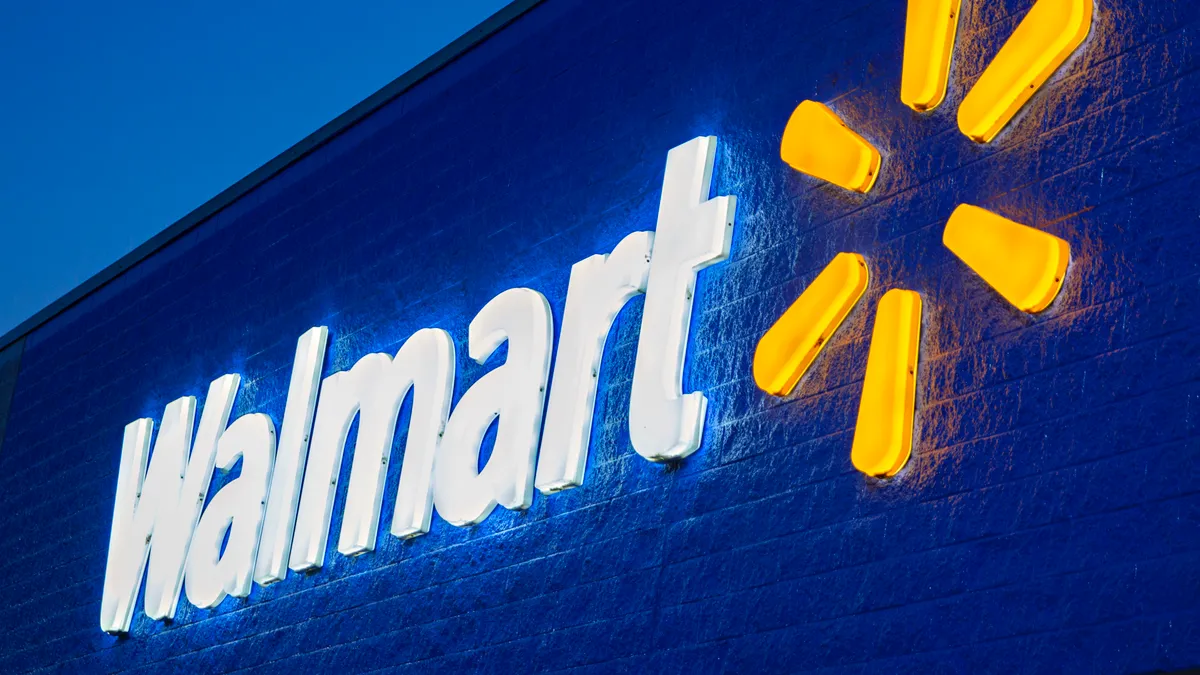Dive Brief:
- Walmart has agreed to acquire telemedicine provider MeMD, hinting at the scope of the retailer's healthcare ambitions and increasing competition in the crowded virtual care sector.
- Walmart already offers telehealth for its own employees, but the purchase will allow its health division to provide virtual care nationwide, including urgent, behavioral and primary care, the company said in a statement Thursday.
- Financial terms of the deal, which is expected to close in the coming months, were not disclosed.
Dive Insight:
Walmart already partners with telehealth companies like Doctor on Demand and 98point6 on virtual care for its 1.6 million U.S. employees.
But acquiring MeMD will allow Walmart to add virtual care to its Walmart Health agenda, as retail clinic operators increasingly try to integrate their offerings in a push toward omnichannel healthcare delivery. Both Walgreens and CVS have increased their telehealth services over the past year as COVID-19 drove unprecedented demand for virtual care.
The strategy banks on continued consumer demand for telehealth, though early indicators suggest utilization of virtual care may be slowing as vaccinations continue and the coronavirus pandemic wanes. According to a tracker from nonprofit Fair Health, telehealth use among the commercially insured dropped on a month-over-month basis in February for first time since September.
Though the sustainability of virtual care demand post-COVID-19 is still unclear, consumers will likely continue to look for ways to receive care cheaply and conveniently, driving the race among retail clinics to gobble up market share quickly. In addition to Walmart's more than 4,700 pharmacies, the Arkansas-based company currently runs about 20 primary care clinics and has also partnered with medical network Oak Street Health to staff clinics in a handful of Walmart Supercenters in the Dallas-Fort Worth area.
In addition, in 2019 Walmart launched its first Walmart Health 'superstore', massive centers that provide primary, hearing, eye and dental care, lab and X-ray and counseling services with flat-rate pricing for health services, geared at patients with no or poor insurance coverage in underserved areas. The retail giant is investing millions in expanding its network of superstores in the coming year.
Phoenix-based MeMD was founded in 2010 and delivers medical and mental health visits to five million members worldwide via video, phone and email, according to its website. It currently has 30,000 clients across the U.S., including online used car retailer Carvana and insurance company Aflac.
A company spokesperson declined to share information on MeMD's revenue or profitability. But bringing the telehealth vendor under Walmart's umbrella is likely to further pressure telehealth vendors due to the increasingly competitive nature of the market, analysts said.
"Overall this news tells us that telehealth vendors are being 'consolidated' and the market continues to be very competitive," BTIG analyst David Larsen wrote, noting Walmart's sheer size and growing influence in healthcare shouldn't be discounted by incumbents.
Shares in New York-based telehealth behemoth Teladoc fell almost 3% in aftermarket trading Thursday after the announcement. The dip continues the stock's decline this week, which started after Cantor Fitzgerald analysts called telehealth a "commodity" following a story in The Wall Street Journal sharing that PepsiCo had switched its telehealth provider from Teladoc to LiveHealth Online, a business owned by rival Amwell.
Teladoc's stock has fallen about 47% from highs in late January, while Amwell is down 67% in same period.
Despite the uncertainty, investor interest in telehealth has yet to slow in 2021, evident in record-setting funding rounds and a number of high-profile deals, including Cigna's snap-up of telehealth provider MDLive and clinical navigator Grand Rounds' merger with virtual care company Doctor on Demand.
Buying MeMD puts Walmart once again in direct competition with e-commerce behemoth Amazon on another front. Amazon is currently working to expand its virtual care program, Amazon Care, to employees nationwide, and will begin offering it to outside employers over the summer.
Large companies are increasingly looking to commercialize what they've learned from in-house initiatives to lower health costs for their own employees. Amazon previously tried this through a joint venture with J.P. Morgan and Berkshire Hathaway, called Haven, that fizzled after a few years and closed in February, showing the difficulty of disrupting the entrenched U.S. insurance chassis.
For its part, Walmart launched a health insurance brokerage company in October, and said in July it planned to sell health insurance policies directly to consumers, as it elbows further into the traditional healthcare sector. And in June, it acquired CareZone, a VC-backed startup that develops apps to manage medications and chronic illnesses, for $200 million.

















